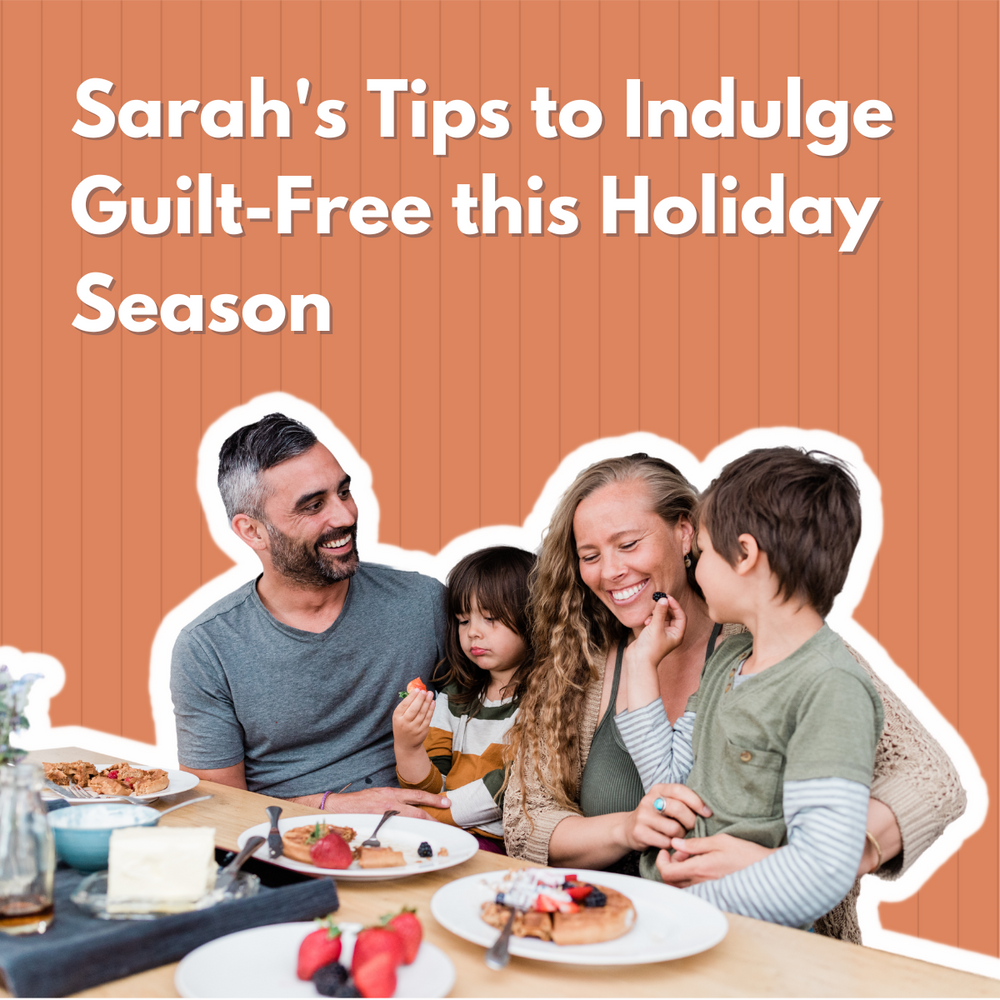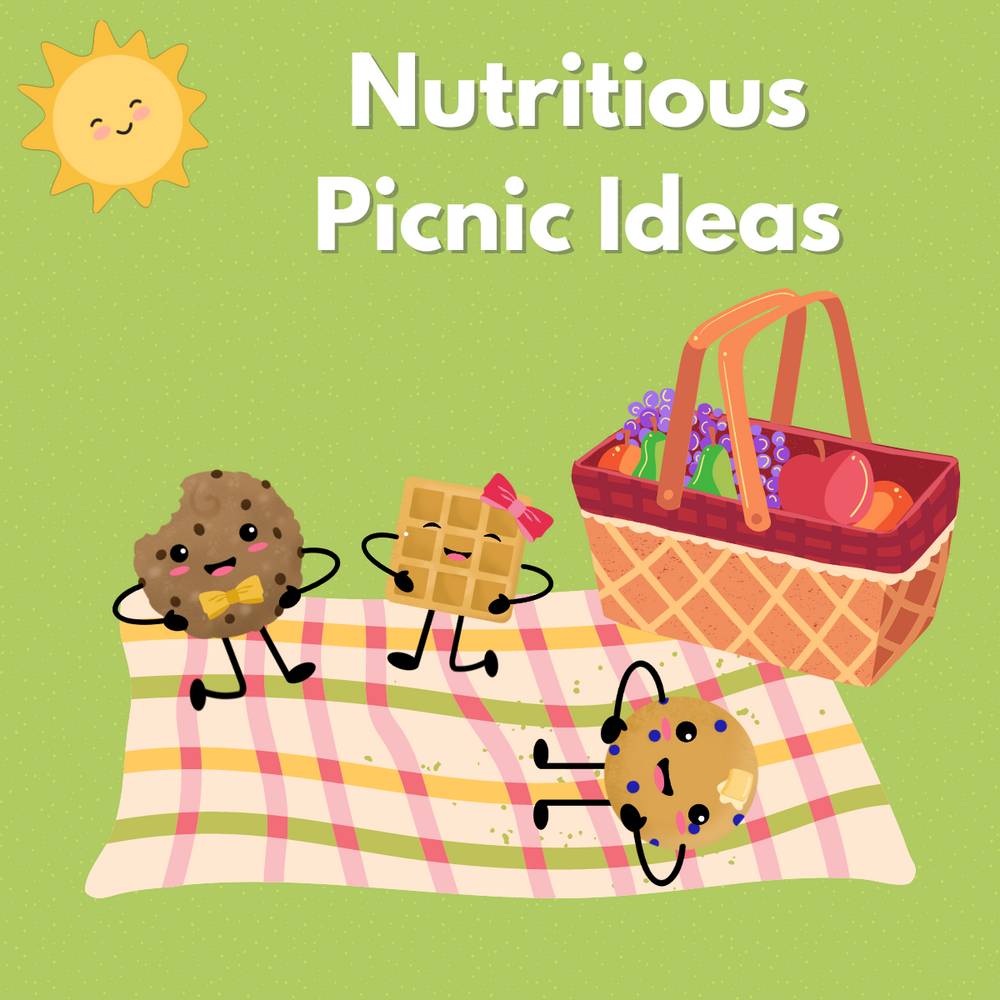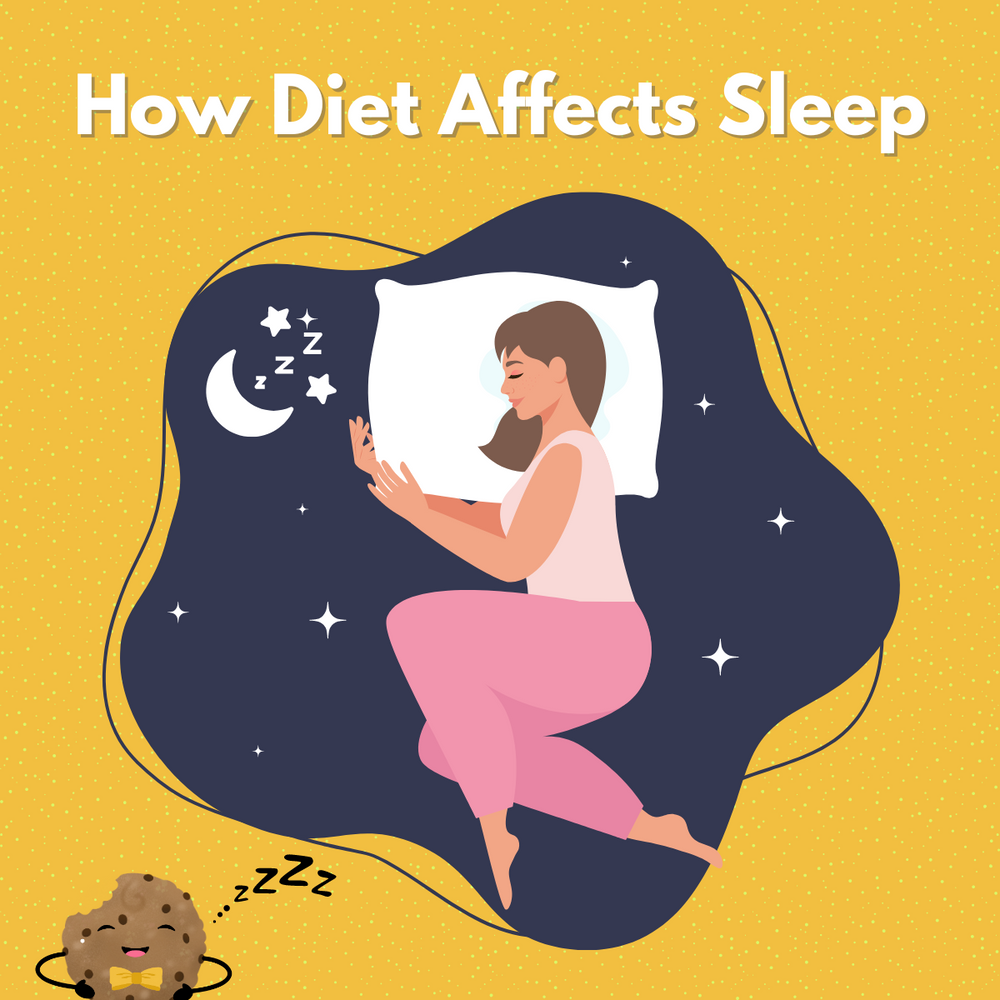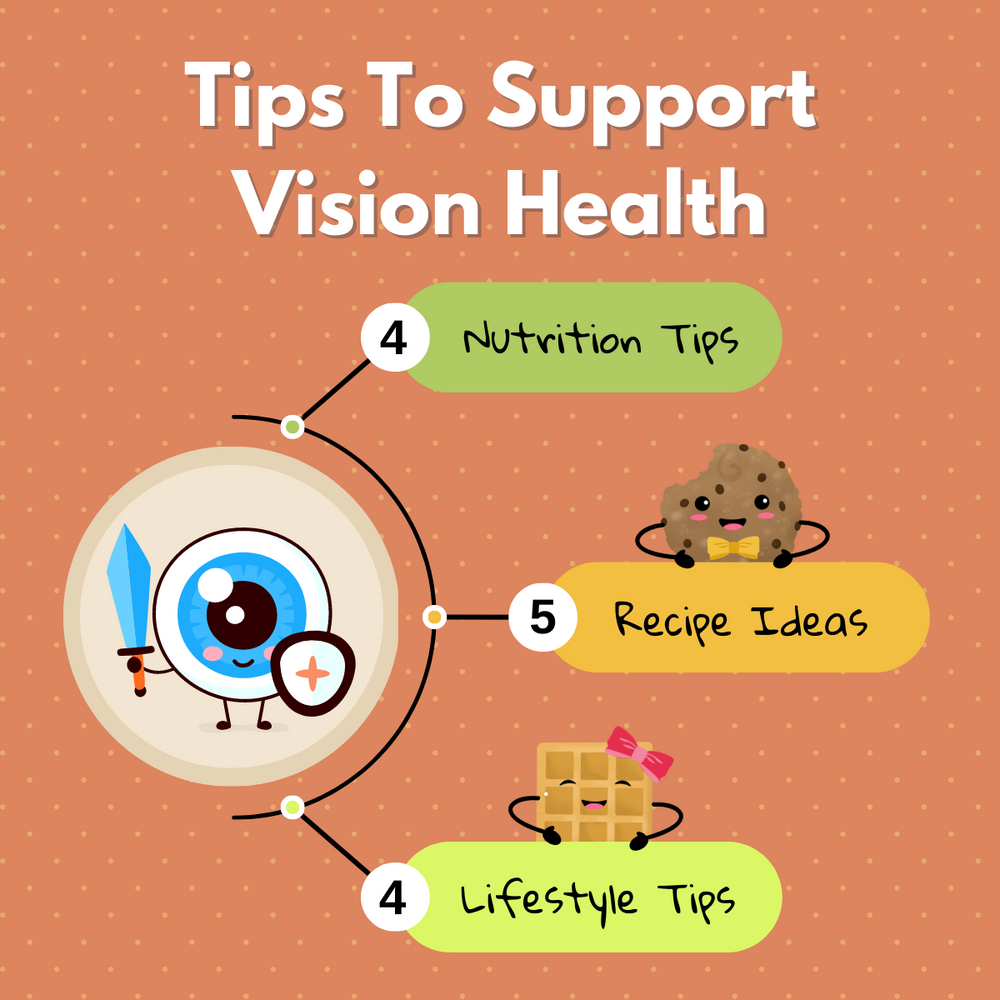How to Indulge Guilt-Free (and teach your kids about Moderation) this Holiday Season

The holiday season for many can be filled with family, friends, and fun…. but at the same time, shrouded by heavy emotions and feelings of dread. The impending exposure to treats and indulgent foods is enough to invoke feelings of fear and anxiety around eating during the holidays. But what if you could just enjoy the holidays, guilt free, this season? Intrigued? Keep reading!
Consider some self-reflection
I know it sounds odd, but its important to reflect on your relationship with food to be able to truly enjoy it without guilt! Humans are programmed to feel pleasure and enjoyment from eating. Consuming food is, in fact, essential to our survival! So why is it that eating for so many of us, leads to feelings of guilt (which is often amplified during the holiday season)!
This dilemma has a multitude of reasons behind it, and is nuanced for each individual. However, a major contributor is the influence that diet culture has on our beliefs and values around food. Damaging diet culture messages invade social media, advertisements, grocery stores, gyms, even our health care system! Many of them are weight-loss focused, and promote programs or diets what involve some type of food restriction or compensation for calorie intake. No wonder it is so common to feel guilty about a little indulgence?!
Here's a fact: any form of restriction ultimately leads to feelings of deprivation. When deprivation becomes unbearable, the primal instinct to eat (to survive) will take over, leading to feelings of “out-of-control” eating. After this happens it is not uncommon to experience overwhelming guilt about the volume and/or type of food eaten, making it easy to conclude that you lack “willpower” or “cannot be trusted” around certain foods. While in reality your wonderful body was just doing its job to survive the perceived famine that was inflicted upon it.
Whether or not you can relate to these scenarios during the holidays, it can be a helpful practice to reflect on your values and beliefs around food and eating. Are you at peace with food, or are you at war with it (and/or your body)? This can be a difficult thing to unpack. If you would like help navigating this area of your life, do not hesitate to book in with an intuitive eating focused dietitian.
Create memories with food
Food is a big part of any celebration. Whether it’s a birthday, wedding or the holidays, food plays a special role in enjoying time together with family and friends. Every year during at Christmas I remember helping my mom make the cranberry sauce for the big turkey dinner. I loved watching the firm sour berries slowly bubble down into a thick, sweet sauce. I felt a sense of pride and closeness knowing I helped make the cranberry sauce that everyone passed around the table to enjoy with their turkey. Whether it is making cranberry sauce or baking a delicious pumpkin pie, the point is to enjoy making lasting memories together. Creating delicious desserts or dishes with yummy ingredients is a powerful way to do this! If you need some inspiration, try this delicious Pumpkin Bread recipe or these Soft Ginger Cookies (yum!).
Eat normally
It is not uncommon that in anticipation of an indulgent holiday meal, people may restrict themselves earlier in the day to “save up” their calories for that holiday feast. The issue is that this commonly leads to the “out-of-control” eating, followed by overwhelming guilt described above. Eating normally throughout the day (meals and snacks every 2-4 hours depending on your individual hunger levels) will help to nourish your body and prevent the guilt provoking all-or-nothing approach to holiday eating. Balanced meals and snacks that contain protein, fibre, and fat help to regulate your blood sugar levels, ultimately leveling out your energy level and mood. This is one of the reasons why the Dietitian in me loves Susrainable mixes – they are loaded full of two satiating nutrients (fibre and protein).
It is not a fun feeling to go into a holiday celebration hangry and irritated (especially if you are the one hosting!!). Ravenous hunger will make it almost impossible to savor your food and enjoy the moment with loved ones. So, try eating normally: have breakfast, lunch, and snacks (if you are hungry between meals) before your holiday dinner.
Bid Farewell to the food police
Being the “food police” is one sure way to make yourself, or your child, feel guilty for indulging during the holidays. Labeling food as “good” or “bad” assigns morality to food, which will only cause regret and guilt when the “bad” food is eaten. But what about nutrition? Shouldn’t we teach our kids about healthy versus unhealthy foods? Actually, no! The goal is to help them nurture a positive, long-term relationship with food. Unfortunately teaching nutrition by labeling food “healthy” or “green light” versus “unhealthy” or “red light” food is not the way to do that. It creates an unhelpful hierarchy of foods and can actually lead to feeling a lot of shame, and eventually, disordered eating patterns.
So, let’s bid farewell to the food police and embrace food neutrality instead! Call the food by its name rather than a positive or negative label. Encourage your children (and yourself) to tune into to how their body feels during and after they eat certain foods, versus letting abrasive food labels (or the food police) dictate the emotions they should feel before and after eating a food. Ask questions like: How does the food taste? Is their tummy still hungry or is it done eating? Did their tummy feel satisfied, or sore after eating? These are just a few reflective questions that can help encourage attunement to the body. Ultimately the goal is to teach our little ones how to self-regulate, cultivate confidence in their eating abilities, and be calm and collected around sweets and treats.




